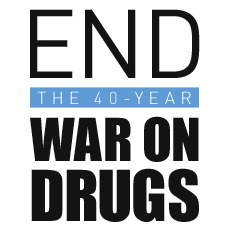
June 2011 marks the 40th anniversary of President Richard Nixon’s declaration of a “war on drugs” — a war that has cost roughly a trillion dollars, has produced little to no effect on the supply of or demand for drugs in the United States, and has contributed to making America the world’s largest incarcerator. Throughout the month, check back daily for posts about the drug war, its victims and what needs to be done to restore fairness and create effective policy.
The federal government’s failed “war on drugs” has had a devastating impact on Texas. From the now infamous Tulia and Hearne drug arrest scandals, to the millions of dollars wasted through anti-drug trafficking programs, Texas’ drug policies have eroded our liberties and squandered our tax dollars.
But hope is not lost in Texas. While it’s true that the state’s close proximity to the horrific “war on drugs”-related violence in Mexico has fueled the adoption of some “we must surrender our liberty to ensure our security”-type legislation, there have been some positive changes as well. The cost of the “war on drugs” has forced our legislators to look at alternatives to incarceration for nonviolent drug offenders, and racial profiling scandals have forced needed changes in state laws governing criminal trials. While we cannot count on a smart drug policy in Texas anytime soon, a glimmer of hope is finally on the horizon.
For starters, the need to rationally address Texas’ massive corrections budget, in part fueled by the large number of inmates sentenced for nonviolent drug offenses, has led to a number of positive changes. The call for alternatives to incarceration, in Texas and across the country, has also benefited from “a growing belief among state lawmakers that prosecuting drug offenders aggressively often fails to treat their underlying addiction problems and can result in offenders cycling in and out of prisons for years.“
Since 2003, the Texas Legislature has passed a number of bills aimed at reducing the number of individuals incarcerated for nonviolent offenses, including drug offenses. Instead of building new and costly prisons, the legislature has increased the use of probation and provided increased funding for nonviolent offenders to attend residential and nonresidential treatment programs. And, as the numbers show, concerns about any coinciding decrease in public safety are unfounded: as Right on Crime pointed out, “serious property, violent, and sex crimes per 100,000 Texas residents have declined 12.8 percent since 2003.”
And there’s more good news! In response to drug task force scandals in Tulia, Hearne, and elsewhere involving the falsifying of government records, witness tampering, fabricating evidence, stealing drugs from evidence lockers, selling drugs to children, and large-scale racial profiling, the Texas Legislature passed legislation that prohibits the conviction of people for drug offenses based solely on the word of an undercover informant. Many of the innocent individuals (mostly African-American men) in those cases were convicted based on testimony by sworn officers and informants with checkered pasts (to put it nicely).
So, while we still face the old and discredited zero-sum security/liberty rhetoric, real progress has been made in Texas to reduce the negative impact of the 40 year-old “war on drugs” for all Texans. Thus, hope is not lost!
Learn more about the war on drugs: Sign up for breaking news alerts, follow us on Twitter, and like us on Facebook.



